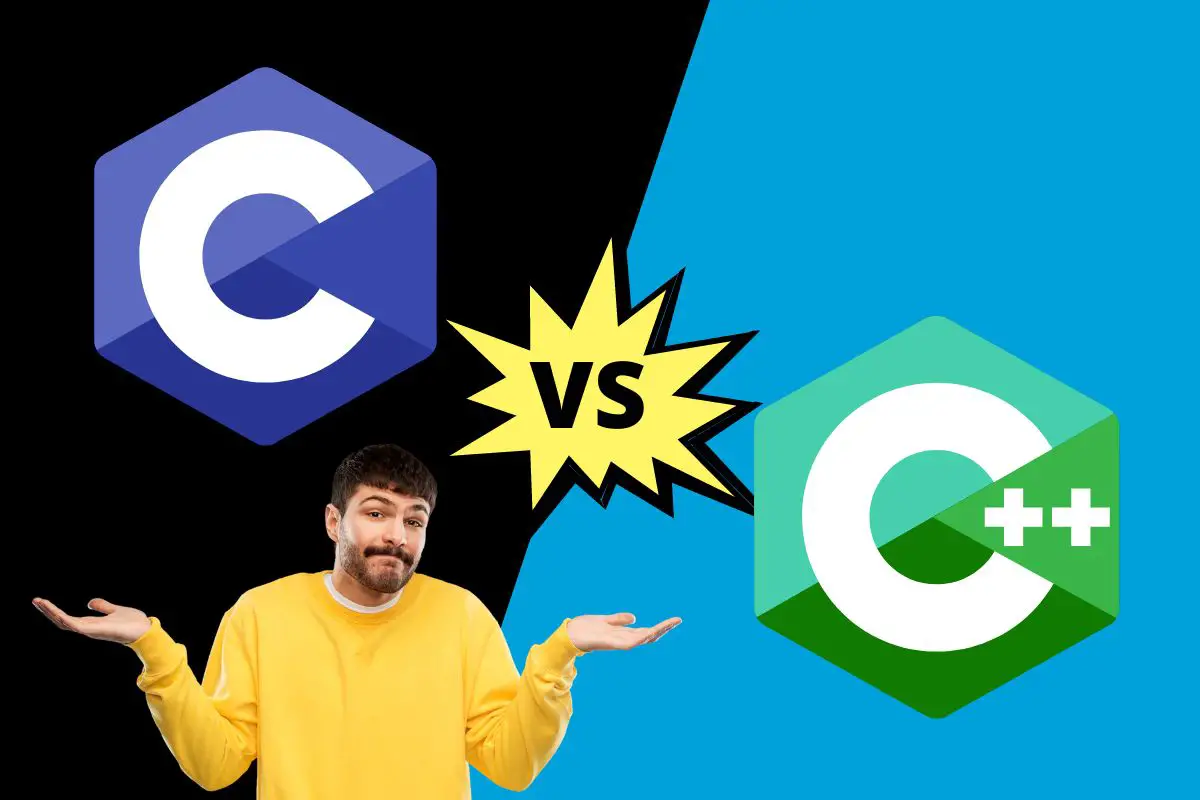The main difference between the C and C++ programming languages is that while C doesn’t support objects and classes, C++ supports them. C is often called a function-driven language, and C++ is an object-driven language.
C and C++ are two of the most popular programming languages. These languages form the fundamentals of various video games, applications, embedded systems, etc.
Table of Contents
What’s the C Programming Language?
C is a general-purpose and procedural computer programming language. Its key highlight is its machine dependency. C can be used to create operating systems for complex programs like Git, Oracle Database, Python, and more.
C forms the base of other programming languages and was initially developed at Bell Labs by Dennis Ritchie, a computer scientist, in 1972. You can learn C through any video tutorial or official documentation.
Years ago, C was used to create mainframes, microcomputers, and minicomputers. Even after the emergence of several other programming languages, such as Java, Python, and PHP, C is still an important language to learn.
Also, C has some unique features that make it worth learning over other programming languages.
Features of the C Programming Language
- Procedural
- Supports Dynamic Memory Allocation
- Low-level programming language (due to no automatic memory management)
- Modularity
- Machine-dependent
- Extensible

What’s the C++ Programming Language?
C++ is an upgraded version of the C programming language. Bjarne Stroustrup developed this syntax-based language at Bell labs in 1980.
The main reason behind creating this language was to add Object Orientation to the C programming language. It’s compatible with C and is safer and well-structured.
C++ is the fastest programming language to develop complex, high-performance applications.
Features of the C++ Programming Language
- Compiled language
- Rich library of functions
- Machine-independent
- Extensible
- Supports features such as polymorphism, inheritance, and encapsulation
- Fast execution speed
- Recursion
- Low-level programming language (due to no automatic memory management)

C vs C++
| C | vs | C++ |
| Supports the structural programming language. Here, the code is checked line by line | Types of Programming Language | C++ is an object-oriented programming language that supports the concept of classes and objects |
| Follows the “top-down approach” | Approach | Follows the “bottom-up approach” |
| Supports only built-in data types and not user-defined data types | Suitable For | Supports both built-in and user-defined data types |
| C programs are saved with the “.c” extension | File Extension | C++ programs are saved with the “.cpp” extension |
| Doesn’t support object-oriented features of C++, and hence, it is not compatible with C++ programs | Compatibility with Each Other | Takes most of C’s procedural constructs. Any C program will compile and run fine with the C++ compiler |
| Not compatible with other languages. | Compatibility with Other Languages | Yes, Compatible with other languages. |
| Absent | Function Overloading | Present |
| Allows multiple declarations of global variables | Global Variables | Doesn’t allow multiple declarations of global variables |
| Inline functions are not supported in C | Inline Functions | C++ supports inline functions, as well as macros |
| Data security is negligible in C | Data Security | In C++, data is tightly secured using access specifiers, encapsulation, classes, etc. |
| Not supported in C | Namespace | Supported in C++ |
| C program uses the <stdio.h> header file | Header File Used | C++ program uses <iostream.h> header file |
Differences Between C and C++
When comparing C vs C++, remember that C is procedural with no support for objects and classes, while C++ combines procedural and object-oriented programming languages.
C++ has significantly more libraries and functions to use than C. If you’re working with complex software, C++ is a better fit because you have more libraries to rely on.
C++ is often a requirement for various programming roles. However, C is quite simple and is the basis for C++.
Both these languages are worth learning if you wish to pursue a career in programming.
If you enjoyed this article, check out our post comparing Java and JavaScript.

